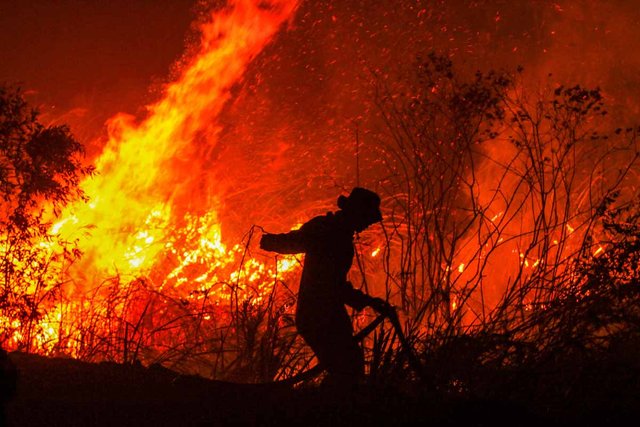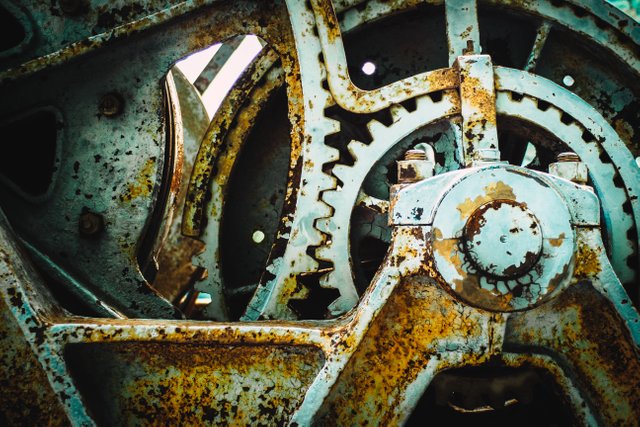Yes, we need system change. But that is not possible without you


If the participants were alone, they immediately left the room and reported a fire. In the presence of others (who, by order of the psychologists, ignored the smoke), they simply sat down. This phenomenon is called the 'bystander effect'. It has since become one of the strongest and most replicable effects in social psychology. It exposes a fundamental but often underrated aspect of our human being: we are social beings through and through. That is, we constantly look at each other to determine what is socially desirable, what is the norm. When we find ourselves in a room filled with smoke (read: an imminent situation), we do not take action so much because of the smoke, but because of the reaction of others.
Our planet crisis also creates a bystander effect, but on a planetary scale. In the meantime, the lion's share of us is aware that we are in an increasingly dangerous situation, but we mainly look at each other and wait for possible 'cues' to take action. And if we see few people walking around in panic or turn to action, then we are inclined to remain on standby for a while. This does not only apply to individuals, but also to governments and companies: we stand by and look at it, waiting for action from others.
Now, of course, a lot has already been set in motion. People all over the world are willing to make progress. While our planet is reaching a number of dangerous ecological tipping points, our collective consciousness also seems to be approaching a tipping point.
Various polls show that in countries such as the US and the UK, climate change is becoming an increasingly important issue for the population. In Australia, it was recently announced, the subject of climate change due to extreme forest fires and droughts has come to the top of the list of concerns for the first time. Meanwhile, the European Commission has declared 'climate emergency'.

Of course, it takes more than one swallow to make a summer. The challenges facing us have become so immense that courage quickly drains from us, like water from a hand. Whether knowingly or not, there is often still a general sense of powerlessness.
Besides that, there is a long-term debate within the environmental movement: individual behavioral change versus system change. However, this discussion is a gross simplification of how our society works. Yes, it is true that individual behavioral change is not enough to bring about system change, and that separating waste or taking a 2-minute shower is like tinkering about at the edges, rather than tackling the real root causes of the problem. It is also true that not everyone (yet) has the socio-economic opportunity to make major changes to their own lifestyle, such as installing solar panels or driving electrically. And some vegetarian alternatives are still more expensive than (much too cheap) meat.
But all this does not mean that you as an individual (especially those with a privileged economic position) just have to wait for 'the system' to change, that you are essentially powerless and your personal choices and actions will prove to be futile. Society is a complex fabric that consists of a web of individuals and groups that constantly communicate with each other. Major social changes never arise by themselves; they are the product of self-reinforcing actions, both at the individual and collective levels.
What is important here is to make a difference between individual behavioral changes that arise from a need to stand out from the rest (snobbery) or from the need to silently ease your guilt (in the style of 'I have done my part'). No, what I am talking about here is an individual behavioral change that arises from an intrinsic motivation to contribute to a broader cultural change in consciousness.
Hence the statement: a better environment starts with system change, but therefore your personal commitment is desperately needed.

Three reasons:
- Anyone who is willing to sacrifice something comes across as more credible
What one does, more than what we say, gives a signal about what's really important. If you want people to share your concerns about the climate, you have to translate words into deeds and be the example that puts the others on notice. Research shows that climate scientists who argue for emission reduction seem more credible if they also practice this themselves. This is primarily a responsibility for the higher educated. Last year, research showed that despite their green voting behavior, those with a higher education emit significantly more CO2 than those with lower education. In other words: practice what you preach!
- Individual behavior is contagious
People do not live on their own small islands. People are naturally gregarious and mainly watch what other 'peers' around them say and do. In other words: people do not necessarily reason rationally, but mainly social: they align their choices, preferences and desires, often unconsciously, with the social groups in which they find themselves. If someone in a group decides not to fly or to fly less, over time it can affect the prevailing social norm within the group. This does not mean that everyone will follow this person immediately, but it does mean that the obviousness of flying can come up for discussion. The underlying issue (the climate crisis) is also given a more concrete place in the minds of the group members.

Our personal influence often goes further than we think. Just think about the theory of three Degrees of Influence, proposed by Nicholas A. Christakis and James H. Fowler in 2007.
Christakis and Fowler explored the influence of social connections on behavior. They described how social influence does not end with the people to whom a person is directly connected. People influence their friends, who in turn influence their friends, and so on; hence, a person's beliefs and actions can influence people he or she has never met, to whom he or she is only indirectly tied. Christakis and Fowler posited that diverse phenomena "ripple through our network, having an impact on our friends (one degree), our friends’ friends (two degrees), and even our friends’ friends’ friends (three degrees).
The rule here is: the greater the sacrifice, the stronger the signal that large-scale change is needed. In other words: the harder you make it yourself (for example, change trains four times to get somewhere or ordering a vegetarian burger if you are actually a meat lover), the sooner people will notice that something is important to you. It is crucial that these lifestyle changes are not made behind closed doors, but are shared with the environment. Otherwise the impact will be limited.
- Individual action contributes to creating momentum for system change
If individual behavioral change 'ripples through our network', which then triggers collective cultural change, it may also prompt more political will to take action. Those who do their best on a personal level will vote faster for a party that is ambitious in the field of climate measures. They will also insist on structural change or sustainability within their own organization or party.
Politicians are extremely sensitive to the issues raised by their electorate, but they need the idea that their (possible radical) proposals can count on enough support. If the social norm shifts due to an accumulation of individual behavioral changes by citizens, this may create momentum for political change. Even politicians who are personally concerned about climate change, as shown in this research, also need signals from citizens to propose new laws and regulations.
Society is more than a collection of individuals, it consists of a complex interaction between small, medium and large, between thinking and doing, between past, present and future. To make system change possible, all those levels have to participate, but it starts with individual and collective cultural change. That is why the choice is not binary, but rather a journey that starts with individual change and ends with system change.
If we continue to see ourselves as powerless, there will be no change. We must all go through a deeper cultural change, one in which our behavior and view of people and the world are better aligned with the ecological limits of our existence. The real meaning of individual choice is ultimately not how much CO2 you have saved, but the message you want to send: that you take climate change seriously. The more people do that, the more the world itself can reverse course.

Photo 1 by Linus Nylund on Unsplash
Photo 2 by Arthur V. on Unsplash
Photo 3 by Kumiko SHIMIZU on Unsplash
References: